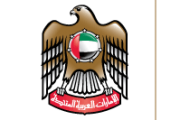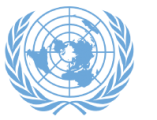Mr. Chairman,
I would also like to express the support of my delegation for the OIC statement, and welcome the adoption of the resolution by consensus.
Mr. Chairman,
We are currently facing a challenge that deeply threatens international peace and security, as terrorism is a global phenomenon that transcends borders, cultures and religions, leaving no state or city in the world safe from its dangers. The multitude of heinous terrorist attacks that have occurred in the recent years have left enormous damage in their wake, including thousands of casualties, an exacerbated migration crisis, and irreversible damage and destruction of property and cultural heritage. This vast crisis requires us to develop an international response to effectively counter terrorism.
The review of the United Nations Global Counter-Terrorism Strategy adopted ten years ago provides the international community with an opportunity to assess its achievements in this area, and develop mechanisms to stay abreast of new developments in countering terrorism, as well as new challenges, most notably the spread of extremist ideologies, foreign terrorist fighters, and the use of social media and modern technology by terrorist groups to achieve their malicious agenda.
Mr. Chairman,
Terrorism is a complex and multi-faceted phenomenon, and tackling it will require us to engage in a multi-pronged approach, that goes beyond military operations alone. We must address terrorism in its early stages, addressing the roots of radicalization and extremism, and countering recruitment. The United Arab Emirates developed a comprehensive and multi-policy strategy to combat terrorism and remains committed to fighting extremism and terrorism in all its forms and manifestation.
We are also aware of the importance of addressing the conditions that are conducive to the spread of extremism and terrorism, and in this context the UAE pursues efforts aimed at preventing extremism before it turns violent. The UAE focuses on the empowerment of its society by encouraging participation in state-building, and providing alternatives to the options posed by terrorist groups. For example, the recent appointment of a Minister of State for Youth to the UAE cabinet is rooted in our faith in young people. In the UAE we are convinced that by providing our youth with the opportunity to fulfill their aspirations and live up to their potential, we invest in long-term development and stability of our nation and beyond. We have also worked to promote the participation of women in all sectors of society and their integration in our efforts to combat extremism and terrorism.
Moreover, it is vital to work on the consolidation of moderation, tolerance and pluralism in our societies, to prevent extremist groups from exploiting sectarianism and racism to recruit individuals. In this regard, the UAE, has issued Decree Law (2) for the year 2015, which criminalizes all acts associated with contempt of religion and holy sites, and combats all forms of discrimination and rejects hate speech. We have also appointed a Minister of Tolerance, who is working to spread the values of tolerance and peaceful coexistence in the country. In addition to supporting moderate religious discourse, the UAE has promoted many initiatives including the Muslim Council of Elders, which aims to address the roots of extremism.
Mr. Chairman,
Issuing laws and regulations to deter extremism and terrorism is crucial. We have worked in the UAE to develop a comprehensive legal framework to address violent extremism. The government of the UAE has enacted the 2014 amendments to the Terrorism Act in order to provide new tools to prosecute terrorists, while at the same time offering the opportunity to rehabilitate those who rejected terrorism and abandoned its path.
The United Nations Global Counter-Terrorism strategy has highlighted the importance of counter-terror financing, and since 2014, the UAE has issued large-scale, anti-terrorist financing laws, that criminalize all funding entities. The UAE has also joined important international conventions on this issue.
Mr. Chairman,
There is a need to develop long-term strategies to overcome extremist and terrorist groups, and to ensure their intellectual defeat, including through the means of social media which are being exploited to spread extremism and terrorism. Therefore, the UAE is working to counter online messaging by extremist groups through the Sawab Center, which was launched by the UAE in cooperation with the United States in March 2015, to fight extremist propaganda and recruitment by raising and strengthening the voice of moderates, and opposing extremist ideologies in the region and around the world.
States must come together and unite their efforts regionally and internationally to uproot extremist and terrorist threats, including by exchanging best practices and experiences in this field, and building international partnerships and coordinating efforts. The UAE has been keen to support international efforts in the fight against extremism and terrorism, and has taken an active role in the activities of the Working Group of the International Coalition against Daesh, and the Global Counterterrorism Forum, and has become the co-chair of the Working Group on the fight against violent extremism along with the United Kingdom.
The international community must provide the tools and expertise necessary to strengthen capacities of governments to eradicate threats of extremism and terrorism. Therefore, the UAE is honored to host the Hedaya Center for countering violent extremism, which works to provide support, research, training and assistance to the international community to build capacities and share best practices.
Mr. Chairman,
In closing, I would like to commend the efforts of the United Nations for its significant role in the development of the United Nations Global Counter-Terrorism Strategy. In this regard, we also thank the co-facilitators of Argentina and Iceland for their tremendous efforts to adopt the resolution by consensus. We invite the international community to redouble our joint efforts to build societies that are safe and free from extremism and terrorism.


